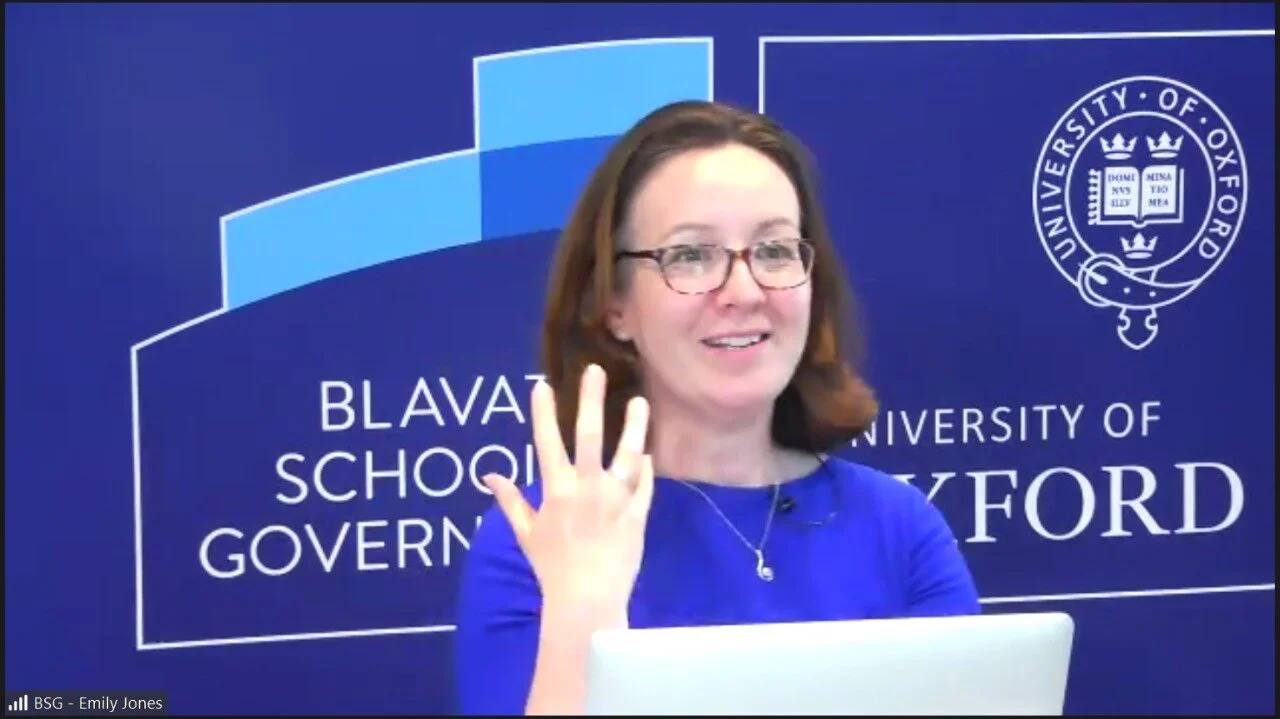How to Say No, and Still Win a Negotiation - Negotiation Skills Workshop
Many of us, women especially, unconsciously tend to undervalue our merits. The workshop helped us recognize where we might be selling ourselves short, and how we can address the weaknesses in our negotiation styles.
Before stepping into the Trinity term at Oxford, our cohort participated in a Negotiation Skills Workshop – organized by the Weidenfeld Hoffmann Trust in collaboration with the Blavatnik School of Government. Led by Emily Jones, Associate Professor in Public Policy and Director of the Global Economic Governance Program, the session helped us master the art of distributive and integrative real-world negotiations.
I tend to rely largely on my intuitions in negotiations. While that does work on a good day, it frequently leaves me uncertain between the choice of appearing too belligerent or, on the contrary, easily influenced. In the majority of cases, I end up choosing the latter. Going into the negotiation workshop, I was hoping to learn strategies that would allow me to voice my mind, without sabotaging the process. Pleasantly, that was precisely what the workshop focused on.
Emily Jones, Associate Professor in Public Policy and Director of the Global Economic Governance Program, led the workshop
We prepared for the session by reading case-studies on mining royalties and public-private partnerships for education, written by Emily Jones and Sarah McAra. After being acquainted with the settings of each case, we were paired-up for simulated negotiations. Before stepping into dialogue, each scholar was given a confidential information document, outlining the ‘BATNAs’ (Best Alternative to a Negotiated Agreement) and walk-away points. Post the parleys, the scholars were debriefed over the different strategies, approaches, and styles of negotiation.
The immersive session allowed us to experientially learn how to maximize value from negotiations by identifying our leverage points and zones of possible agreement, capitalizing on psychological insight, expanding the scope of negotiations, managing conflicts, choosing between cooperating and competing, understanding the playing field so as to gauge the style of negotiation to be deployed, looking for tradable differences so as to steer the dialogue in our favour, and future-proofing an agreement.
Many of us, women especially, unconsciously tend to undervalue our merits. The workshop helped us recognize where we might be selling ourselves short, and how we can address the weaknesses in our negotiation styles. It equipped us with a set of tools which we can use to achieve win-win outcomes, today and later in our lives. Now, we know how to say no, and still get a yes in a negotiation.



